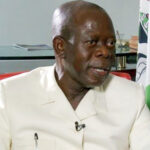NIGERIANS seeking to correct their date of birth (DoB) on the National Identification Number (NIN) database, will now pay N28,574, following a major upward review of service charges by the National Identity Management Commission (NIMC). The new fee represents a 75 per cent increase from the previous charge of N16,340, making it the most expensive data modification service under the Commission’s revised price regime.
The change is part of a broader review of NIMC’s service fees, which the agency said is necessary to reflect current economic realities, including a national inflation rate of 32.70 per cent, rising operational costs, and the need for self-sustenance.
Under the new structure, corrections to other personal details such as names, addresses, and gender now cost N2,000 per modification up from N1,522, a 31 percent increase.
Re-issuance of the NIN slip, previously pegged at N500, will now attract a fee of N600.
Meanwhile, premium services offered at select enrollment lounges and visa centres will cost N20,000 for NIN enrollment, and N3,500 for re-issuance of slips.
For Nigerians in African countries, NIN enrollment now costs $50 for adults and $30 for children. Data modifications cost $55 for date of birth changes, and $10 for other fields. Outside Africa, name corrections are charged at $60, with other data fields remaining at $10 per change.
In an executive summary accompanying the new pricing list, NIMC stated that the adjustments followed consultations across its departments and benchmarking against charges by other government agencies like the Nigeria Immigration Service and the Federal Road Safety Corps.
“For over a decade, our service charges remained stagnant despite expanding our infrastructure and service offerings. This new price regime ensures we can maintain our systems, support national revenue goals, and align with global identity management standards,” the Commission said.
NIMC also cited its role in broader policy objectives such as tax unification, social interventions, and digital identity expansion.
While the Commission insists the fee hike is necessary, many Nigerians have expressed concern about the affordability of the new charges, particularly the high cost of correcting date of birth — an error that often arises from initial registration challenges in rural or crowded centres.





